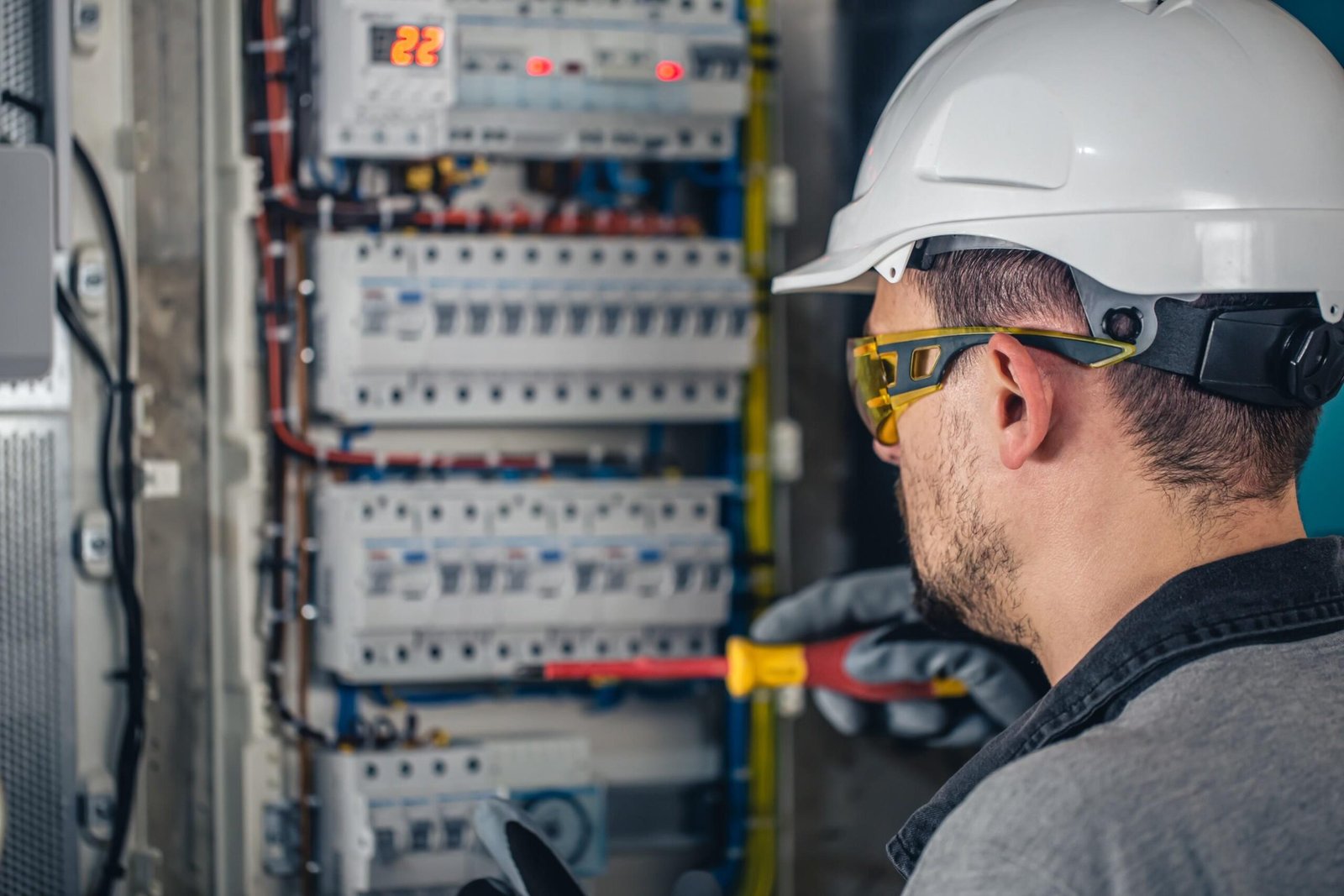What Are the Best Lightning Protection Systems for Industry?
Industrial facilities in Miami-Dade County, FL face serious risks from lightning strikes, especially during Florida’s long storm season. These strikes can damage electrical systems, disrupt operations, and cause dangerous fires. That’s why having a reliable lightning protection system isn’t optional—it’s critical. Solid Power Inc has been helping industrial sites across the region protect their buildings, equipment, and people with top-tier protection systems tailored for South Florida’s intense weather.
In this guide, we’ll break down the best types of lightning protection systems for industrial facilities and explain what to look for in a trusted local provider.
Why Lightning Protection Matters for Industrial Sites?
A single lightning strike can cause:
-
Equipment failure
-
Data loss
-
Downtime costing thousands of dollars per hour
-
Fire and safety hazards
The risk is even greater in industrial operations, which often involve complex electrical systems, sensitive technology, and large-scale infrastructure. In Miami-Dade country, where lightning strikes are common, especially in summer, installing a complete lightning protection system is one of the smartest moves an industrial business can make.
Best Lightning Protection Systems for Industrial Facilities
1. Lightning Rod Systems
Lightning rods (air terminals) are placed at high points on the building and are designed to intercept a lightning strike before it hits the structure. These rods safely channel the current through a conductor to the ground, preventing structural damage and fire.
2. Grounding and Bonding
The lightning protection system must include a proper grounding network. Industrial sites use grounding grids or deep rods that allow the high voltage from a strike to safely dissipate into the earth. Bonding ensures all metal elements are at the same electrical potential, reducing the risk of dangerous arcs.
3. Surge Protection Devices (SPDs)
SPDs are critical for industrial operations that rely on control systems, automation, or heavy equipment. These devices are installed in electrical panels and communication systems to divert excess energy and protect against voltage spikes caused by lightning.
4. Early Streamer Emission (ESE) Systems
ESE systems are designed to attract lightning earlier than traditional rods, making them ideal for large industrial facilities, tank farms, or sites with wide, open layouts. They offer a broader coverage area and are often used in complex environments.
5. Shielding and Internal System Protection
In addition to external components, many industrial facilities benefit from shielding sensitive equipment, isolating control rooms, and adding extra surge protection layers to backup power systems or sensitive circuits.
What Options Should You Look for in Miami-Dade County?
When selecting a lightning protection provider, businesses in Miami-Dade should look for:
-
On-site hazard assessments
-
Custom system design
-
Professional installation by certified technicians
-
Integration with existing grounding systems
-
Regular testing and maintenance
-
Documentation and code compliance
With South Florida’s high humidity and frequent lightning activity, it’s essential to hire a provider that understands both the technical and environmental challenges of the region.
Industries That Benefit from Lightning Protection
Lightning protection is essential for a wide range of industries operating in the Miami-Dade area:
-
Food and beverage processing
-
Pharmaceutical and chemical manufacturing
-
Heavy equipment plants
-
Distribution warehouses
-
Water and wastewater treatment
-
Data centers and telecom facilities
Each of these facilities has equipment and operations that must remain protected to avoid costly downtime or dangerous failures.
What Makes a System Effective?
A successful lightning protection system should:
-
Provide a clear path to ground for the current
-
Be designed specifically for the facility layout
-
Protect not only the structure but also the electrical and control systems
-
Comply with industry codes and local regulations
-
Be maintained and inspected regularly
Working with an experienced team ensures that all components—from lightning rods to surge protection—work together seamlessly.
Conclusion
For industrial facilities in Miami-Dade County, FL, protecting against lightning strikes is a critical part of your safety and continuity strategy. Whether it’s a large manufacturing plant or a sensitive data processing facility, choosing the right system—and the right team—makes all the difference.
Solid Power Inc offers full-service lightning protection solutions, from assessment and design to professional installation and annual maintenance. Their team understands the unique weather conditions and industrial needs of South Florida and provides tailored systems that meet both code and operational requirements. Don’t wait for a damaging strike—get protected today with a solution you can trust.
Frequently Asked Questions (FAQs)
Q1: How much does a lightning protection system cost for an industrial facility?
A: Prices vary depending on size and complexity. Smaller facilities may spend around $15,000, while large or high-risk sites can exceed $100,000. Costs typically include design, materials, installation, and surge protection.
Q2: Are lightning protection systems required by law in Miami-Dade County?
A: They’re not always mandated, but many industrial insurance policies require certified protection. Facilities handling flammable or hazardous materials may be required by code to install them.
Q3: Can surge protection alone defend my facility?
A: Surge protection helps prevent equipment damage but doesn’t stop lightning from striking a building. A full lightning protection system includes both external (rods, grounding) and internal (SPDs) components.
Q4: How often should the system be inspected?
A: Annual inspections are recommended, especially after a major storm or hurricane season. Professionals check grounding resistance, rod integrity, bonding, and surge device function.
Q5: What certifications should my installer have?
A: Look for companies certified by UL (Underwriters Laboratories) and familiar with NFPA 780. Installers should also provide documentation for insurance and safety audits.


